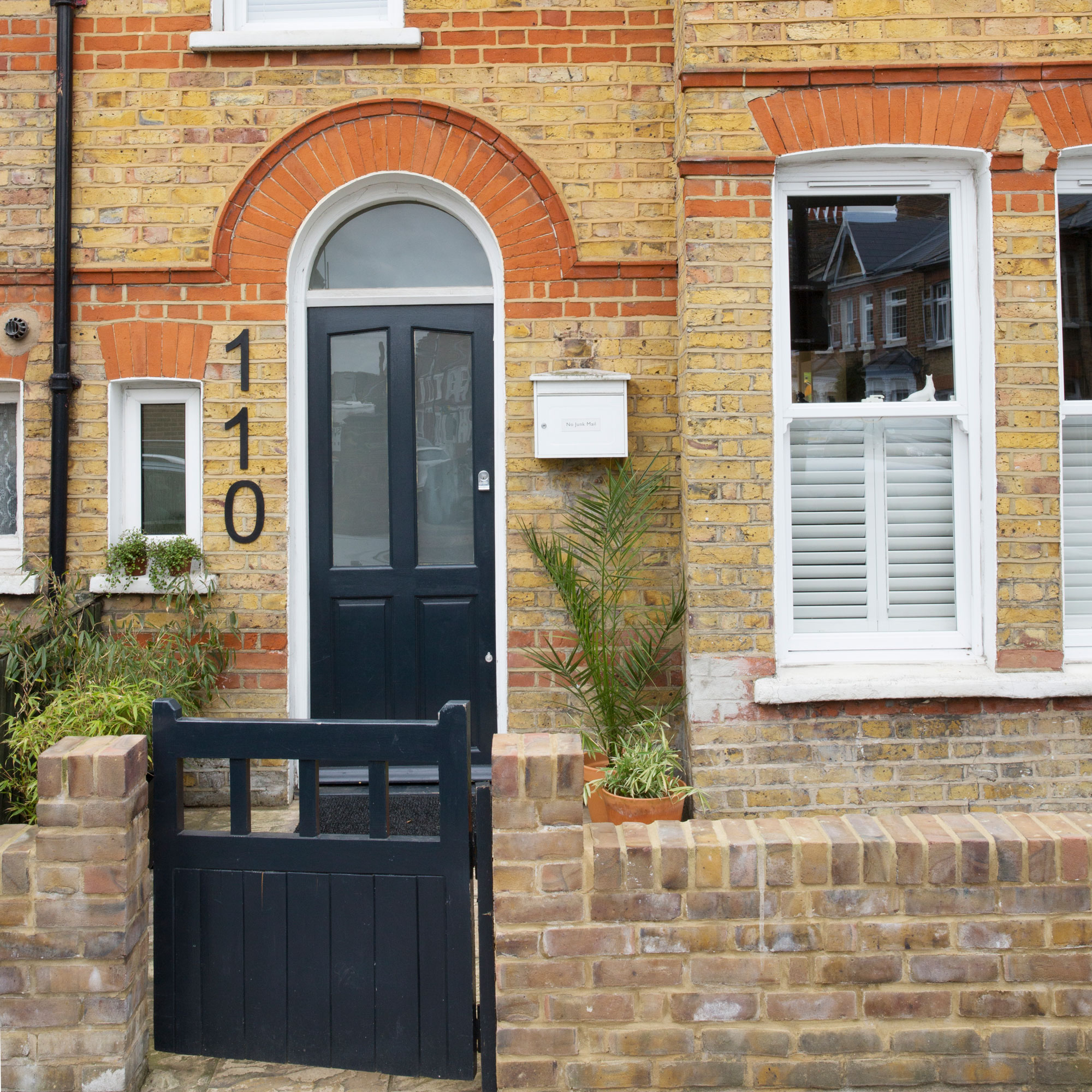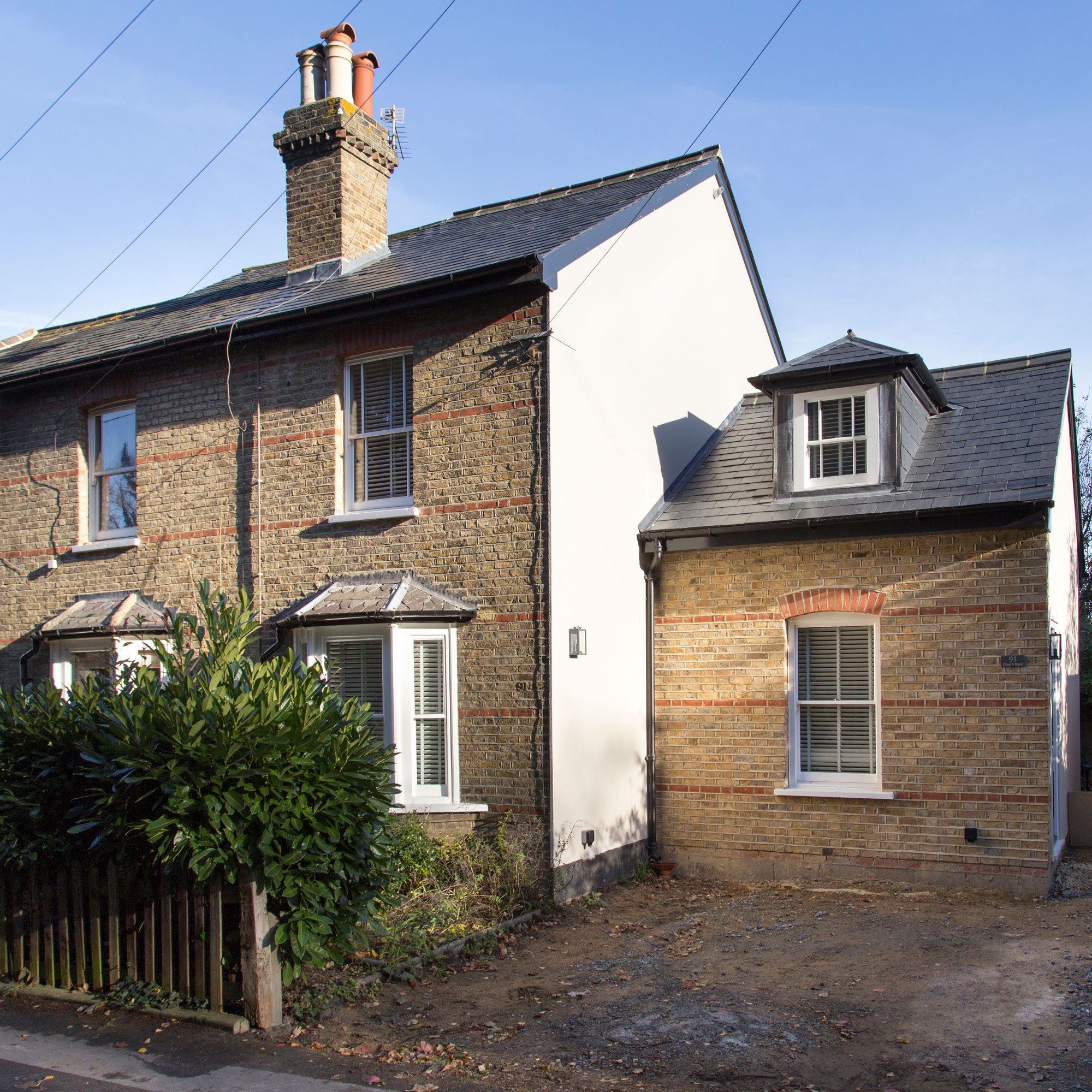Joint mortgages guide: how to buy property with a partner, friend or family member
Joint mortgages might be a great way to get on the property ladder, but they do require careful consideration
Sign up to our newsletter for style inspiration, real homes, project and garden advice and shopping know-how
You are now subscribed
Your newsletter sign-up was successful
Choosing to join forces with a partner, friend, or family member to buy a property by getting a joint mortgage has one big advantage: it should make the purchase more affordable.
Mark Harris, chief executive of mortgage broker SPF Private Clients, says: 'These types of mortgages have increased in popularity over the years, as they solve a number of potential buying hurdles by boosting affordability and borrowing potential.'
Here, we explain how joint mortgages work and what you need to know about them.
How do joint mortgages work?
A joint mortgage is a mortgage that’s shared between several people. Most often, that means sharing the mortgage with one other person. But in some cases up to four people sign up to a joint mortgage.
You may take out a joint mortgage with a partner, friend or family member. Each person will be named on the property deeds and will be equally responsible for the mortgage repayments.
Chris Sykes, associate director and mortgage consultant at broker Private Finance, says: 'Each applicant’s circumstances are taken into consideration to see if (jointly) they can afford the mortgage. This will include their income and any commitments they have in the background such as loans, and debts on other properties.'
If you’re buying a property with someone else, you can choose to own in one of two different ways: ‘tenants in common’, or ‘joint tenants’. If you’re joint tenants, you’re seen as a single owner with equal rights to the property. However, as tenants in common, you own particular shares in the property that reflect how much you initially invested.
Sign up to our newsletter for style inspiration, real homes, project and garden advice and shopping know-how

Types of joint mortgages
Joint mortgages essentially work the same way as standard mortgages, and they come with similar interest rates and fees. However, you’ll hopefully be able to put more money down as a deposit if you’re buying with another person, and this should enable you to get a better mortgage rate.
The general rule is that the bigger your deposit, the lower your mortgage rate. The best rates are reserved for buyers with a deposit of 25% or more of the property’s value. But even boosting your deposit from, say, 5% to 10% could get you a better rate.
If you’re a parent helping your child onto the property ladder, you may apply for a ‘joint owner sole proprietor’ mortgage. These enable you to join a mortgage without being on the property deeds or paying the 3% stamp duty surcharge on a second property.
Pros and cons of joint mortgages
Pros
- Getting a joint mortgage may enable you to buy a property when you wouldn’t have been able to afford it otherwise.
- You can usually borrow more if you buy a property with another person because your combined income will be higher.
- You could get a better mortgage rate if you’re putting down a bigger deposit.
Cons
- You’re creating a link to another person’s financial situation and history. If they fall into financial difficulty, or have a poor credit history, this could show on your record too. This could affect your chances of getting a mortgage and other credit in the future.
- You’re relying on someone else not to miss any repayments – which could be stressful if this is ever a concern.
- If one of you wants to break away from a joint mortgage, it could be tricky.

What if one person wants out?
There could be plenty of reasons this might happen, such as divorce, or one person wanting to buy a home of their own, for example. You could transfer the ownership to a single owner, otherwise known as buying out the other’s share.
Harris says: 'If one of you wants to buy the other out and take over the mortgage in full, the lender will want to see evidence that you can afford to do so before releasing the other party from their obligations.'
Alternatively, you may both decide to continue paying the mortgage even if one of you has moved out. Or, you could sell up and use the proceeds to pay off the mortgage, although you may face an early repayment charge.
Is a joint mortgage with a friend or family member a good idea?
Potentially, yes, but it’s really important that you entirely trust the person in question, as a mortgage is a big financial commitment.
If one borrower stops paying their share of the repayments, the lender is entitled to chase you for the money as joint owner. You’ll also need the other person to agree if you want to make any changes to the mortgage, such as extending the term, or borrowing more. You should also talk about what will happen if one of you wants to sell up before the other - you may even opt to put a legal agreement in place setting out your options.